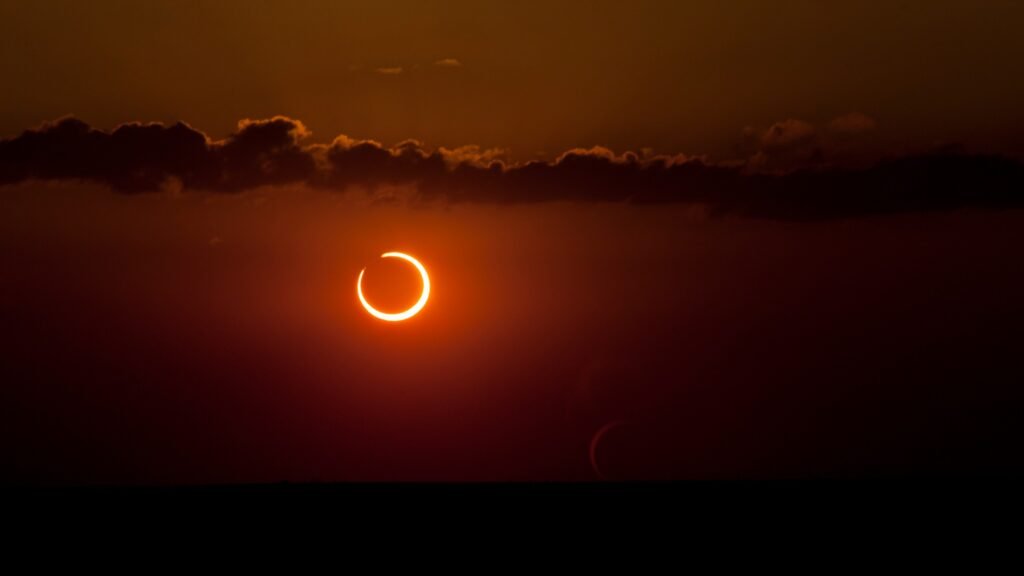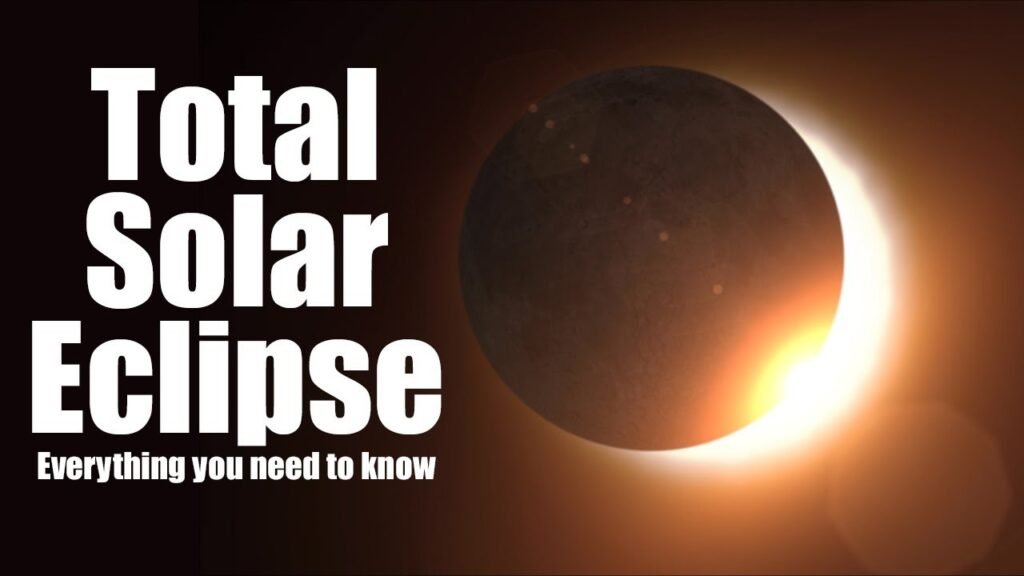Pakistani readers, look up but don’t panic. Rumors swore the planet would darken on August 2, 2025 but that claim is false. The actual August 2, 2027 total solar eclipse occurs then, not this year. Called the eclipse of the century, it sends the Moon’s shadow along a path of totality. That official track arcs across North Africa, southern Europe and the Middle East. Pakistan stands outside that corridor and sees only a light sliver of sun dimming. This post debunks the viral 2025 myth. It relies on verified NASA predictions and astronomy data to reset expectations and help you prepare also helps you accurately time viewing and protect eyesight safely. For more latest news checkout, Pakistan coverage.
2nd August Myth
The 2nd August solar eclipse rumor claimed the world will go dark in 2025. Thirty‑second YouTube clips and social posts amplified the hype. NASA predictions firmly denied any total solar eclipse on that day. Misinterpretation of satellite imagery fueled panic. Experts clarified no Saros 136 eclipse will fall on August 2, 2025. The truth is the eclipse of the century is scheduled for August 2, 2027. Pakistanis don’t have to worry this year. Social media exaggeration spread confusion faster than facts. NASA’s official data shows no eclipse of significance in 2025.
This myth arose due to erroneous data reuse. Many writers reused one draft from 2027 then replaced numbers without updating dates. They mixed path of totality, which belongs to the 2027 eclipse, and posted it prematurely. Fake claim headlines misled readers into thinking darkness was imminent. By contrast experts emphasized the real total solar eclipse on August 2, 2027. Pakistan’s astronomy clubs warned people that no eclipse will blot out the sun this weekend or month. The falseness became clear when skywatchers checked NASA’s eclipse maps.
Eclipse Dates
The 2nd August solar eclipse refers to the total solar eclipse happening on August 2, 2027. Pakistan will only witness a partial eclipse zone that day. Before that, Pakistan saw a partial solar eclipse on March 29, 2025. Another total solar eclipse lands on August 12, 2026 but only over Spain, Greenland, and parts of Russia. No full eclipse touches Pakistan territory. TimeandDate lists starts in Pakistan around early to mid‑afternoon local time though with low obscuration. Pakistan’s skies remain bright only briefly altered during this event.
Observers across Pakistan must rely on timeanddate or NASA eclipse countdown tools to track timings. Karachi’s eclipse begins about 3:01 pm PKT with 29.45% sun coverage at max 3:57 pm and ends 4:49 pm. Lahore sees only 7.44% maximum obscuration near 3:52 pm. Islamabad and Rawalpindi hover near 6‑8%, each lasting under forty minutes total. These slim figures confirm clearly Pakistan remains outside the path of totality. The real spectacle stays hundreds of miles away, but viewers here still glimpse a sliver of this cosmic alignment. To get all the latest news, click here.
Visibility Map

This eclipse’s path of totality runs across countries such as Spain, Morocco, Algeria, Tunisia, Libya, Egypt, Saudi Arabia, Yemen, Sudan, and Somalia. Sri Lanka and northern India only catch a slight partial shadow. Pakistan lies well east of this track so only minor dimming is visible. The surrounding region receives only the penumbral eclipse zone portions. The real eclipse center stays within North Africa, southern Europe and Middle East territories. Those in Luxor, Egypt stand nearest the greatest eclipse point near Luxor, where maximum darkness falls.
The eclipse of the century on August 2 2027 is the longest totality (≈ 6 min 23 sec) ever seen from land this century. Pakistan’s cities lie far outside the total solar eclipse corridor. Observers in Jeddah / Mecca can enjoy full totality. Tourists in southern Europe and North Africa can plan visually dramatic eclipse trips. Pakistanis preparing for even a partial eclipse zone must deploy solar viewers or pinhole cameras. You won’t see totality but you get a taste of an astronomical event worth noting.
Pakistan View
In Pakistan the partial eclipse visible in northeastern Canada style analogy helps explain scale. Karachi covers up to 29 percent of the Sun. Lahore dips near seven percent. Rawalpindi Islamabad see around six percent. The result looks like a crescent sunlight dial, not darkness. This minimal effect won’t impact daily routines. Still safe‑viewing gear is essential since no moment of full mask blocks the Sun here.
Duration Record
August 2 2027 yields the longest land eclipse until 2114 according to NASA and Space.com. It will remain hidden from Pakistan beneath open daylight. The eclipse holds a maximum land‑visible duration of nearly 6 minutes and 23 seconds in southern Egypt just south of Luxor. That happens because of the Earth–Moon–Sun alignment with the Moon near perigee and Earth near aphelion giving the Moon’s apparent diameter larger than Sun appearance. This rare configuration leads to extended maximum eclipse duration valued by scientists and eclipse‐chasers.
No future eclipse offers such extended visibility until 2114. Past eclipses like July 22, 2009 had comparable duration but fell over ocean, not easily reachable land. The 2027 event emerges from the same Saros 136 sequence that includes 2009 and earlier eclipse trails. For astronomy tourism & eclipse‑chasing this becomes a bucket‑list moment. People in Luxor Egypt, Jeddah / Mecca, southern Spain, Tunisia, or Morocco find themselves under totality for minutes not seconds. Even amateur photographers eager for eclipse photography (especially corona capture) flock there.
Safety Tips
To witness the 2nd August solar eclipse safely Pakistanis must use solar eclipse safety gear at all times. Do not look directly at the Sun without ISO‑certified glasses. Pinhole viewers or shade 14 black polymer are safe alternatives. Schools and astronomy societies should distribute guidance. Screening regulations from educational authorities must ensure children wear proper lenses before any viewing begins. These steps prevent permanent eye damage even during brief partial eclipse zone moments seen in Pakistan.
Only in the path of totality could viewers remove protection when the Sun is fully covered. Since Pakistan lies outside that path no safe unprotected viewing is possible at any time. Use indirect methods like eclipse‐projection boxes or solar filters with telescopes. Stay in shaded areas while watching. Ankara authorities shared recommendations for public viewing events on 2026 and 2027 eclipses. Pakistani event organizers should follow the same rules. Never misjudge sunlight intensity‑ protective steps must be strict. To Stay updated with the latest weather news, click here.
Travel Planning
Travel planning for eclipse viewing must begin now for the eclipse of the century on August 2 2027. Book guided tours to regions inside the path of totality, like Luxor Egypt, Morocco, southern Spain or Jeddah / Mecca. Airline rates and hotel rates spike near the date so early reservations help reduce cost. Eclipse‑trained guides offer educational sessions, countdown event setups with timeanddate or NASA eclipse countdown tools, and expert commentary. Pakistanis traveling should check visa regulations and find weather‑clear zones.
Reliable forecasts indicate that locations in North Africa have low cloud cover historically in August whereas coastal Europe may risk overcast. Selecting cities known for clear skies improves chances for eclipse photography (especially corona capture). Travel planners recommend staying at least three days around eclipse to offer backup in case of clouds. Major packages include telescopes binoculars pinhole viewers and safety glasses. The journey becomes part of the adventure for astronomy tourism & eclipse‑chasing fans from Pakistan and beyond.
Expert Voices
Astronomers at NASA and journalists on Space.com warn that the world will not go dark on 2 August 2025. NASA predictions stress that real totality comes only in 2027. Experts describe how Earth–Moon–Sun alignment on that date maximizes eclipse length. They confirm the path of totality will cross North Africa, southern Europe and the Middle East. Pakistani outlets echoed these updates rejecting false rumors. These voices emphasize science and data over viral postings to guide publics toward informed understanding.
Local Pakistani astronomy centers plan public events, webinars and safe‑viewing workshops. Specialists compare Saros 136 cycles and global eclipse maps. Student groups learn astronomy basics and how to use eclipse tracking apps. Teaching about maximum eclipse duration and its causes helps audiences appreciate the science behind the spectacle. These local experts showcase fact‐checked figures to counter social media noise. Their commentary turns the “2nd August solar eclipse” from rumor to reasoned anticipation among Pakistani astronomy enthusiasts. Explore top world stories and global updates, click here.
Eclipse Visibility in Pakistan Cities
| City | Maximum Obscuration (%) | Approximate Local Max Time (PKT) |
| Karachi | 29 % | 3 :57 pm |
| Lahore | 7 % | 3 :52 pm |
| Islamabad | 6 % | 3 :47 pm |
| Rawalpindi | 6 % | 3 :47 pm |
| Peshawar | 7 % | 3 :45 pm |
Frequently Asked Questions (FAQs)
Where can I see the August 2 eclipse?
You’ll need to be within the path of totality, which crosses southern Spain, North Africa, and the Middle East; in Pakistan you’ll see only a partial eclipse, not totality.
Why will the Sun disappear for 6 minutes in 2027?
On August 2, 2027, the Moon will be at perigee and Earth near aphelion, so the Moon’s apparent diameter larger than Sun creates a record-long total eclipse lasting about 6 minutes.
What happens to the human body during an eclipse?
Most people feel the temperature drop as light dims and wildlife shifts behavior, but there’s no harm—it’s simply awe‑inspiring nature at work.
Is a solar eclipse every 7 years?
No—a solar eclipse happens somewhere on Earth every year and a half, but a specific location like Pakistan sees a total solar eclipse only roughly once every 360‑410 years.
What is the timing of a solar eclipse?
A solar eclipse typically begins with a partial phase, transitions through a few-minute totality (if you’re on the track), then ends with another partial phase.








